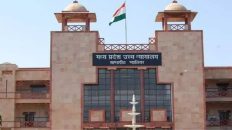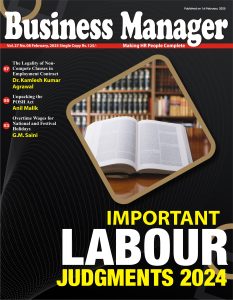Punjab & Haryana HC in the case of Swarup Parkash vs. P.O . Labour Industrial Tribunal, Chandigarh ( CWP-14449-2024 (O&M) decided on 24.10.2024 ) has dismissed multiple writ petitions challenging the Labor Court’s award, affirming that payment of differential wages under the Minimum Wages Act does not create a fresh cause of action to override the principle of res judicata in labour disputes. The case involved contract workers seeking regularization at the Government Medical College and Hospital (GMCH), Chandigarh.
The court emphasized that mere payment of wages under the Minimum Wages Act does not alter the fundamental status of workers or their relationship with the principal employer. The court clarified that such payments do not automatically convert contract workers into direct employees. The court foundthe res judicata principle fully applicable to these proceedings. The court noted that the petitioner had accepted their engagement through contractors in the first reference itself, and the Labor Court had explicitly ruled on their failure to prove direct employment with GMCH. The principle of res judicata applies exactly to such situations, to prevent indefinite litigation.
Also read – Lockton appoints Neha Sharma as Senior Director – People & Culture
The court also stressed that subsequent payment of differential wages under the Minimum Wages Act did not create a fresh cause of action or nullify the res judicata principle. The court emphasized that this principle is universal and essential for ending litigation, preventing losing parties from filing repeated claims. Finally, the court concluded that since both references were filed against the same management (GMCH) and the first reference had categorically determined the absence of direct employment, the second reference was clearly barred.
In this case, contract labours worked at Government Medical College and Hospital Chandigarh under different contractors raised industrial dispute on their termination. Labour Court dismissed their claim on the ground that they failed to prove the employer-employee relationship with college management. Subsequently, in a minimum wages payment dispute, the court granted differential payment of wages by the college. This payment prompted the workers to file a second reference before the Labor Court, which was dismissed. And HC upheld the Labour Court award.
Stay connected with us on social media platforms for instant updates click here to join our LinkedIn, Twitter & Facebook



































